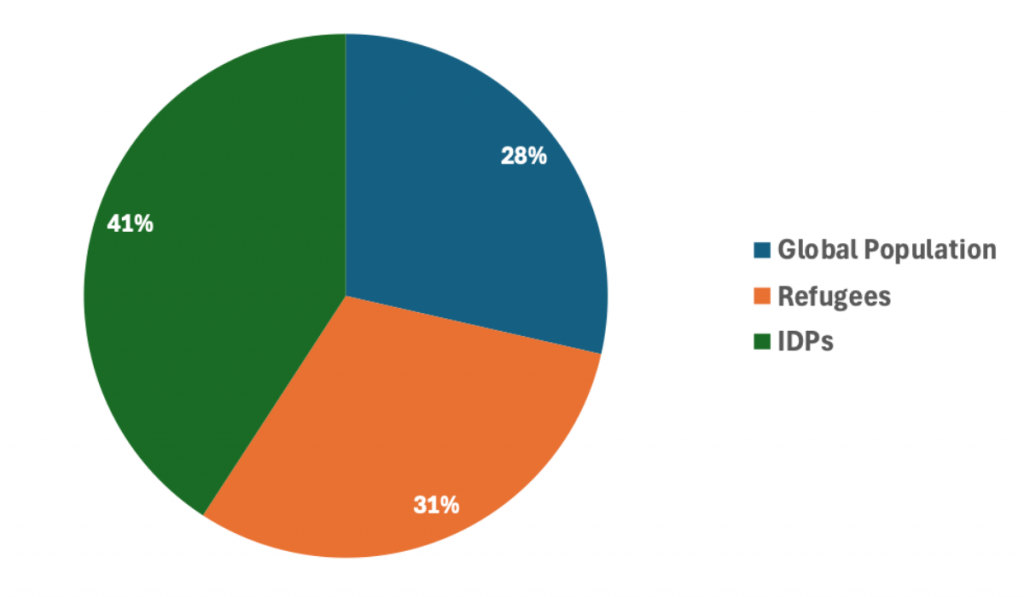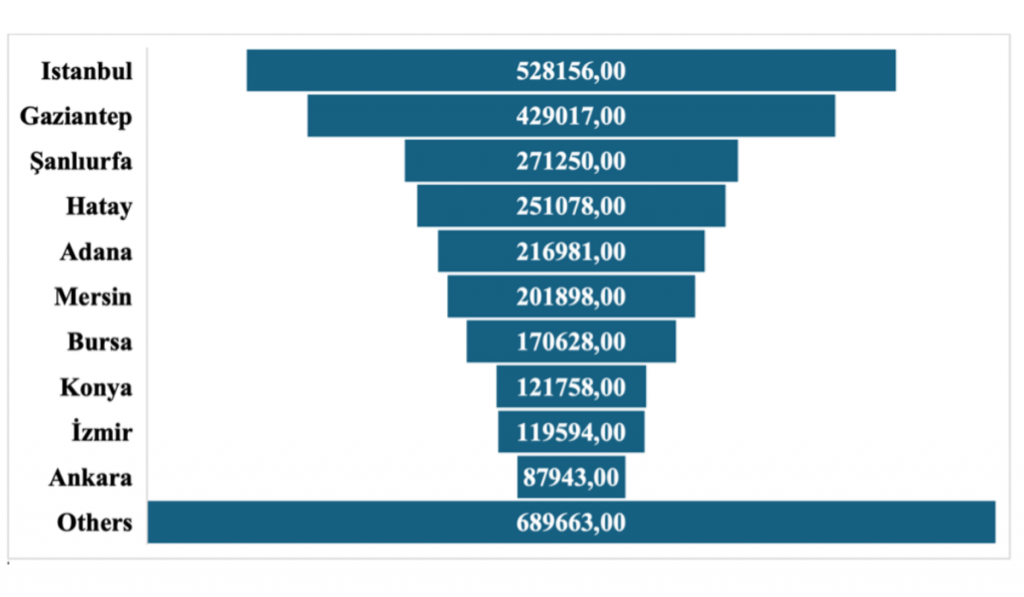Amid rising authoritarian populism, how do cities deal with migrants? Gülşen Doğan highlights how cities' innovative migration policies are helping to promote democratic resilience and multi-level cooperation in the face of global challenges. Cities, she argues, are key actors in the defence of democracy and social inclusion
All over the world, cities are dealing with sometimes unprecedented levels of migration and, simultaneously, pressure from populist political actors to prioritise the 'native' population. Amid such conflicting tensions, how can cities uphold democratic principles? Local governments play a crucial role in migration governance, often implementing policies that national governments cannot or will not pursue. Istanbul, Barcelona, and Berlin, for example, have adopted innovative, inclusive migration strategies, despite political and economic constraints at national level.
A persistent democratic deficit is undermining the effectiveness of global governance. Democratic systems must urgently address environmental crises, economic disparity, and human rights violations. However, state-centric international relations models often neglect human rights concerns, and this limits their enforcement. The European Union, for example, struggles to maintain consistency in its human rights policies. A broader, solidarity-based approach could address these governance challenges. Cities, the centres of political and social life, are well positioned to uphold democratic values, and promote social justice.
Urban areas increasingly influence migration governance, but tensions persist between democratic ideals and national border policies that require innovative local solutions
Migration presents an opportunity to rethink governance accountability, encouraging inclusive models that prioritise migrant rights. To address migration challenges, we need multi-level governance that emphasises cooperation between local, national, and supranational authorities. Scholars argue that cities should foster democratic engagement and citizenship to protect migrant rights. As geopolitical dynamics shift, urban areas increasingly influence migration governance. However, tensions persist between democratic ideals and national border policies – and these require innovative local solutions.
Urban migration governance integrates theoretical frameworks with practical applications. Cities, which accommodate over 60% of refugees, often provide more effective and adaptive solutions than national governments. Resource limitations and restrictive policies, however, can hinder city administrations' efforts.

The multi-level governance model illustrates the interactions between local, national, and supranational actors in shaping migration policy. Cities must navigate these dynamics while resisting authoritarian populism, which threatens democratic governance.

The relationship between central and local governments on migration policies is often contentious. Italian municipalities, for instance, have resisted national directives on migration. In Sweden, conflicts between national housing policies and local autonomy highlight the need for fair migration strategies. Even without populist leadership, Rotterdam and Amsterdam have implemented exclusionary migration policies, exposing democratic deficits in urban governance. However, a grassroots movement in Pittsburgh demonstrates how local initiatives can foster inclusivity. New York, London, and Barcelona lead migration diplomacy efforts. All three cities have succeeded in resisting populist pressures while promoting social inclusion.
Participatory democracy movements empower marginalised communities, enhancing their role in urban governance. Cities are addressing financial and legal challenges through transnational networks that promote inclusive governance. Effective migration governance requires collaboration across local, national, and international levels. The EU Urban Partnership on Inclusion promotes local integration of migrants, despite national governments' reluctance to do so. European cities are pioneering new refugee reception strategies, signalling a shift toward greater inclusivity.
Barcelona, for example, is managing migration through human rights-based policies. Bologna’s success in refugee integration is the result of robust networks and participatory decision-making. In both cases, collaboration between local officials and civil society has succeeded in countering far-right narratives and helped advocate for refugee rights.
Barcelona and Bologna are pioneering new refugee reception strategies, signalling a shift toward greater inclusivity
Conversely, exclusionary policies in Venice reveal the dangers of politicisation and weak stakeholder networks, and evidence the need for civil society advocacy. These contrasting cases highlight the importance of governance frameworks that prioritise inclusion while questioning traditional notions of state sovereignty.
Istanbul exemplifies these complexities. The city currently plays host to over 500,000 Syrian refugees and nearly 600,000 foreign nationals. At the same time, it is navigating significant governance challenges.

Despite resource constraints and ambiguous legal frameworks, Istanbul excels in migration governance through city diplomacy and international collaborations. Like Berlin, the city has adopted proactive policies, including specialist services and municipal IDs for undocumented migrants, despite national policy restrictions that discourage such practices. However, authoritarian populism continues to shape power dynamics between local and national authorities, posing obstacles to inclusive governance.
Democracy is essential if we are to tackle global challenges including climate change and economic inequality. Strengthening regional cooperation and human rights commitments are crucial for maintaining democratic governance. Amid rising authoritarian populism, cities play an increasingly vital role in migration governance, upholding democratic values through collaborative initiatives.
Bologna, Istanbul, Berlin, Barcelona, and Pittsburgh have adopted innovative migration strategies that reveal the opportunities – and the challenges – of urban governance. As political landscapes evolve, cities must continue to adapt, ensuring that democratic resilience remains at the forefront of urban migration policy.